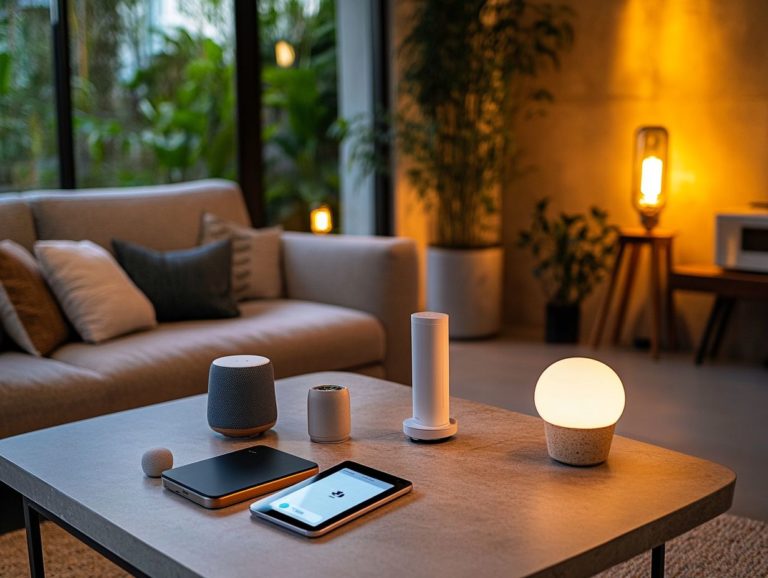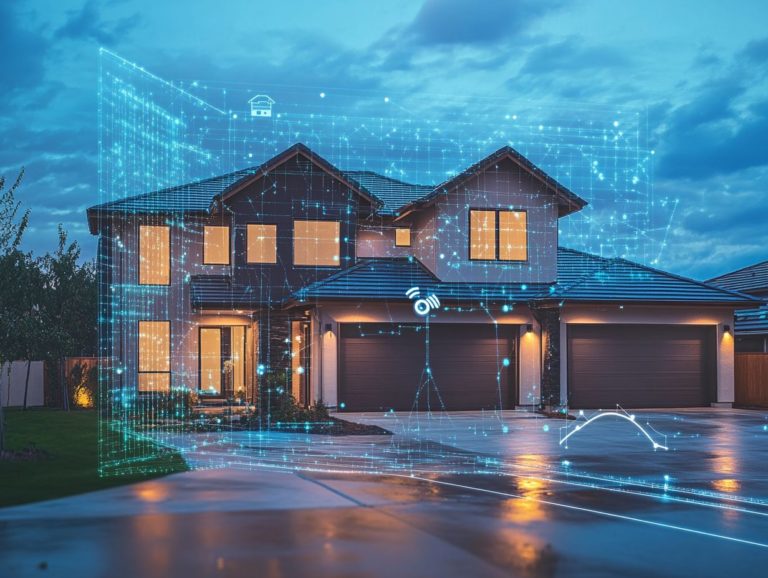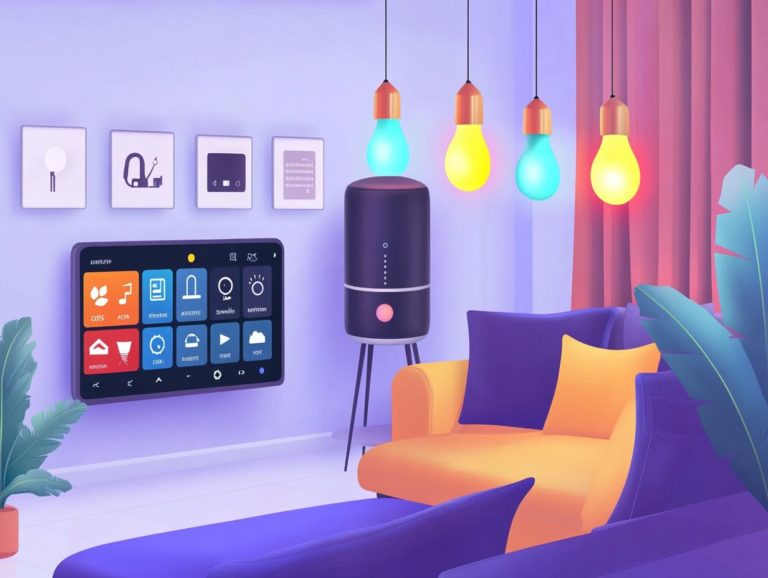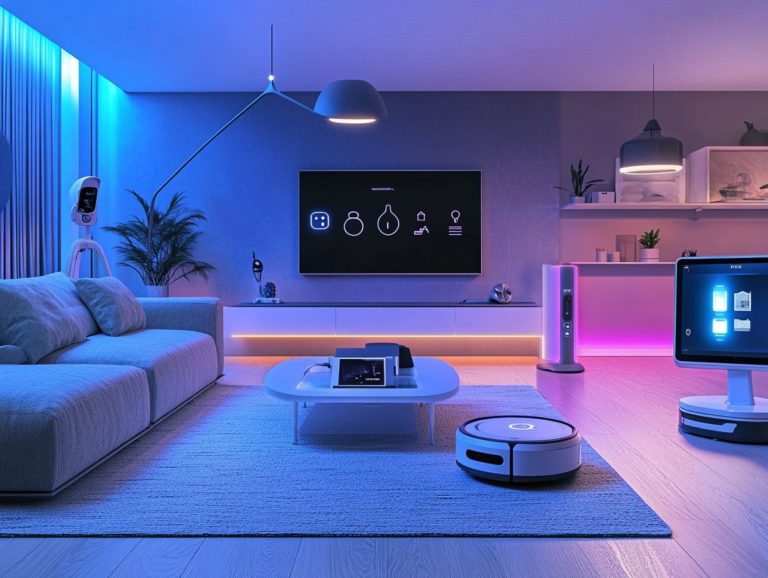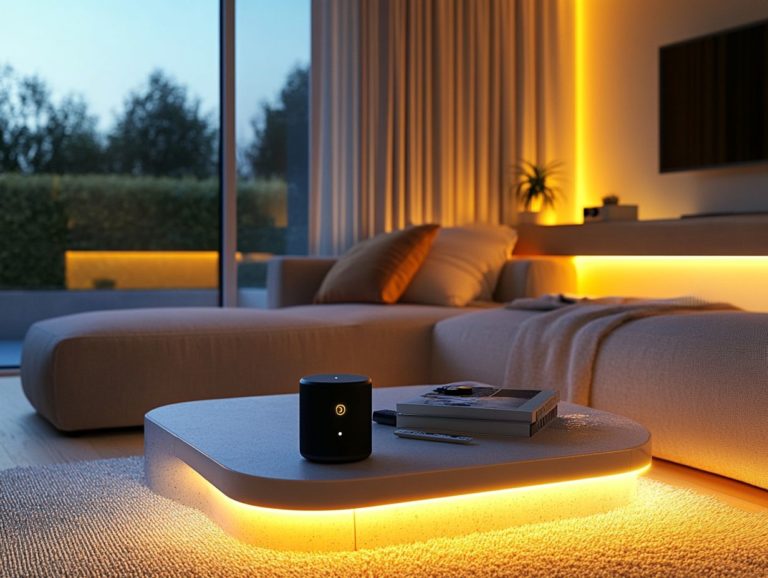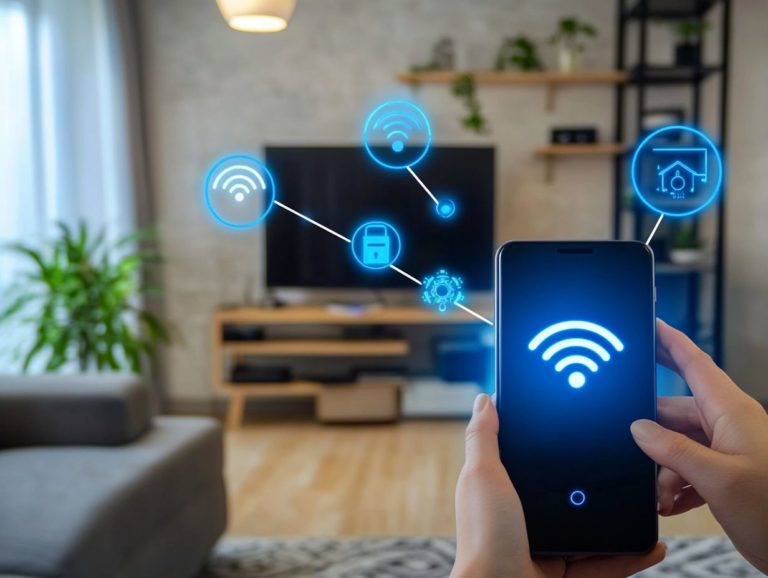The Future of Smart Homes: What to Expect
Step into the captivating realm of smart homes, where innovation is revolutionizing the way you live. As technology continues to evolve, smart devices are seamlessly integrating into your daily routines, elevating convenience and efficiency to new heights. This article delves into the current landscape of smart homes, showcasing popular devices and features while exploring the latest advancements and emerging technologies. You ll discover the profound impact these innovations have on your life as we address vital privacy and security concerns, and forecast future trends, all while acknowledging the challenges that lie ahead. Join us on this exciting journey as you navigate the intriguing future of smart homes!
Contents
- Key Takeaways:
- Defining Smart Homes
- Current State of Smart Homes
- Popular Devices and Features
- Advancements in Smart Home Technology
- Impact of Smart Homes on Daily Life
- Predictions for the Future of Smart Homes
- Expected Trends and Developments
- Challenges and Limitations
- Frequently Asked Questions
- What exactly is a smart home?
- What are some current examples of smart home technology?
- How is the future of smart homes expected to evolve?
- What are some potential benefits of living in a smart home?
- What are some potential concerns about the future of smart homes?
- How can I prepare for the future of smart homes?
Key Takeaways:
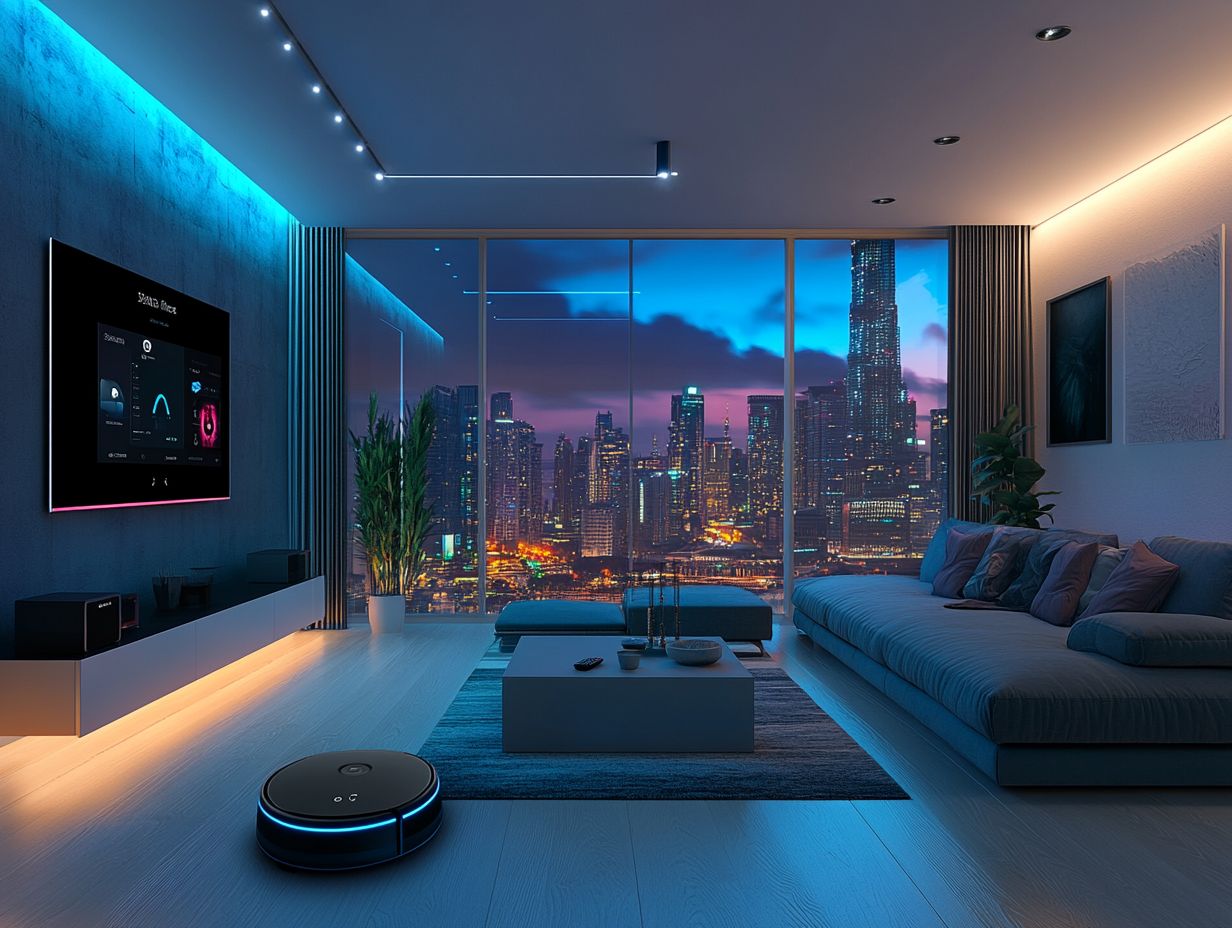
- The future of smart homes promises even greater convenience and efficiency in daily life.
- Emerging technologies and innovations will continue to shape the development of smart homes.
- While there are concerns about privacy and security, expected trends and developments show a promising future for smart homes.
Defining Smart Homes
Smart homes signify a transformative shift in how you interact with your living space. They leverage cutting-edge technologies to elevate your experience, enhance energy efficiency, and seamlessly integrate automated appliances. By connecting various devices through the Internet of Things (IoT) which refers to the connection of everyday devices to the internet, allowing them to send and receive data your smart home unlocks features like remote access, voice commands, and personalized settings tailored to your preferences. This turns home management into a dynamic and intuitive endeavor.
The core elements of these smart environments include intelligent thermostats, advanced lighting systems, security cameras, and appliances that communicate with one another. All are designed to simplify your daily tasks. With automation at your fingertips, you can establish routines that align perfectly with your lifestyle ensuring that lights dim at dusk or that your heating system adjusts according to the weather. This newfound convenience not only enhances your daily life but also contributes to energy savings, as these systems intelligently power down devices when they’re not in use.
By embracing this technology, you redefine what comfort means in your home, paving the way for a more manageable, efficient, and personalized living experience.
Current State of Smart Homes
The current landscape of smart homes is marked by swift growth and groundbreaking innovation. You ll find a flourishing market offering an impressive array of smart home products, ranging from cutting-edge security systems to energy-efficient solutions. Each product is crafted to elevate your overall experience, seamlessly integrating technology into your daily life.
Popular Devices and Features
Popular devices in smart homes encompass smart speakers, like those from Amazon and Google, which enable you to control various features with just your voice. Additionally, smart lighting and kitchen appliances are designed to streamline your daily tasks. These devices work together to create a seamless ecosystem that enhances your everyday convenience, allowing you to manage your environment through simple vocal requests.
For example, you can adjust smart lighting to match your mood or set it according to your schedule, while smart ovens let you monitor and adjust cooking remotely. Integration with other smart devices is essential. This enables everything from thermostats that learn your preferences to security cameras that send you real-time alerts. This interconnectedness simplifies your tasks and cultivates a more efficient living space, significantly elevating your overall experience in modern homes.
Advancements in Smart Home Technology
Advancements in smart home technology are fundamentally transforming the realm of home automation for you. With cutting-edge AI, machine learning, and intelligent systems at the forefront, these innovations are significantly enhancing both the functionality and user experience of your smart home.
Emerging Technologies and Innovations
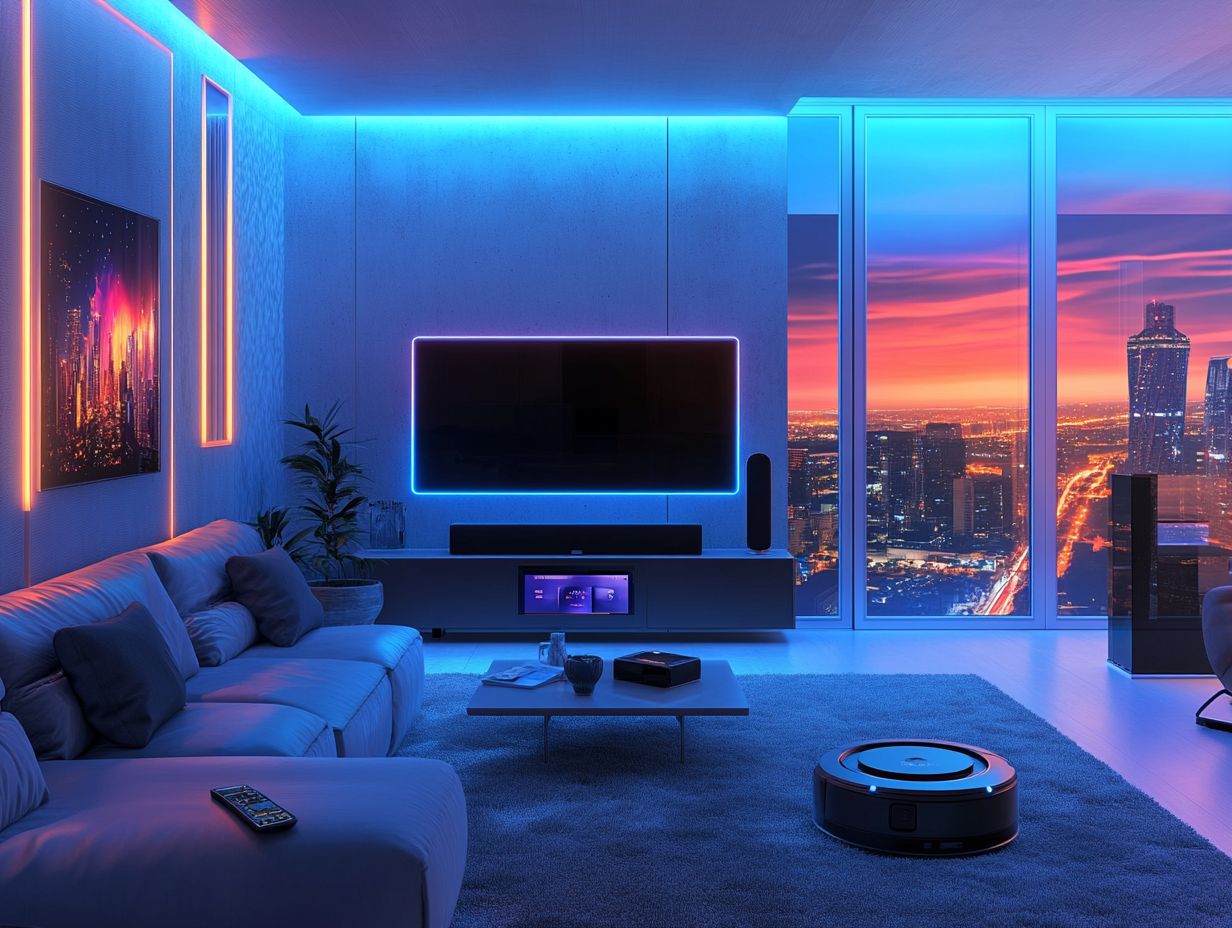
Emerging technologies in smart home ecosystems are setting the stage for remarkable innovations. Robotic assistance and advanced data analysis are transforming your home management experience into something truly integrated.
These technologies let your smart devices communicate easily. They learn from your behaviors, fine-tuning themselves to enhance your routines. Smart technology anticipates your household needs, adjusting lighting, temperature, and security measures autonomously.
With user-friendly interfaces, you have effortless command over your home environment. You can manage your spaces with unparalleled ease. These advancements create an atmosphere where convenience and energy efficiency flourish.
Impact of Smart Homes on Daily Life
The impact of smart homes on daily life is profound. They elevate your experience through seamless automation, boost energy efficiency, and offer health monitoring capabilities.
This technology transforms how you interact with your living environment, simplifying everyday tasks.
Convenience and Efficiency
The convenience and efficiency of smart home technology are unmatched. Automated systems and smart appliances streamline everyday tasks.
Imagine waking up in a home that adjusts heating and lighting, crafting the perfect morning ambiance just for you. Smart thermostats learn your schedule and optimize energy usage, leading to significant reductions in utility bills.
In the kitchen, smart refrigerators take inventory of their contents and suggest recipes. They generate shopping lists to ease your planning. Robotic vacuum cleaners handle floor cleaning, letting you focus on more important tasks or simply relax.
These exciting innovations make daily chores a breeze!
Privacy and Security Concerns
Privacy and security concerns are crucial as you consider smart home technology. You need strong security systems to protect your data and keep your home safe.
The interconnectedness of smart devices increases the risk of data breaches. It highlights the necessity for you to prioritize security features. Developers are employing data analysis to pinpoint vulnerabilities and strengthen system resilience.
Companies are crafting adaptive systems that safeguard your personal information and build your trust. This trust is essential for wider acceptance of smart technology as consumers become aware of their digital footprint.
Predictions for the Future of Smart Homes
Predictions for the future of smart homes suggest ongoing technology evolution, highlighting the latest innovations in smart home technology that will emphasize sustainable energy solutions and deeper smart building integration.
This evolution is set to enhance user experience and improve energy efficiency significantly. By embracing these trends, you can expect a more innovative and environmentally friendly living space.
Discover how smart technology can transform your living space today!
Expected Trends and Developments
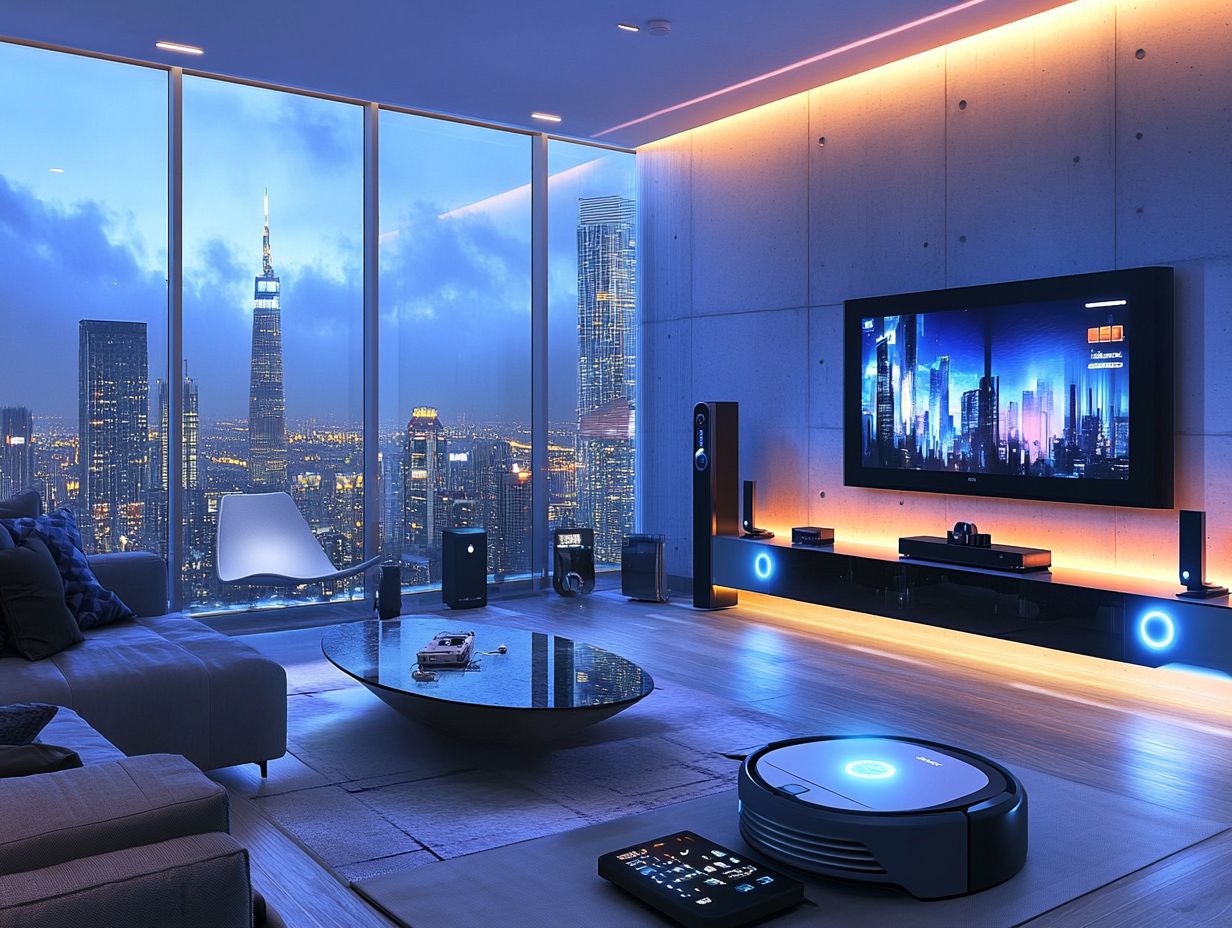
Expected trends in smart home technology suggest you can look forward to enhanced energy-efficient solutions and a surge in advanced home automation systems that prioritize customization and convenience, as outlined in the latest trends in smart homes.
As homeowners increasingly seek seamless integration of technology into their living spaces, personalization will emerge as a key element of smart home systems. The desire for tailored experiences is fueling innovation, with manufacturers crafting devices that learn and adapt to preferences everything from lighting and temperature to security protocols.
With the growing influence of artificial intelligence, which refers to systems that can learn and make decisions, improving how smart homes operate, you can expect more personalized features, making it effortless to manage your environment with efficiency.
In this dynamic landscape, understanding your needs will shape the design of emerging technologies and redefine how you interact with your home.
Challenges and Limitations
In the smart home sector, you will encounter various challenges and limitations, such as technical hurdles that can complicate implementation.
Market trends may affect accessibility, making it crucial to stay informed about shifts that could impact your experience.
Ongoing privacy concerns continue to exist, potentially hindering the widespread adoption of these innovative technologies that you seek to embrace.
Obstacles to Widespread Adoption
Obstacles to the widespread adoption of smart home products often include prevalent privacy concerns, technical challenges with device compatibility, and your own apprehensions about the complexities of home automation.
You may find yourself hesitant to embrace these technologies, worried that your personal information could be compromised or misused. The fragmented nature of smart home ecosystems can lead to frustrating moments when devices from different manufacturers don t work well together.
This lack of compatibility complicates the setup process and diminishes your overall experience. Add to this the steep learning curve that comes with mastering various applications and settings, and it s no wonder these issues can significantly impact your trust.
Feeling frustrated can dampen your excitement about smart homes, and this dissatisfaction not only hinders enthusiasm but also stalls the potential growth of smart home innovations.
Frequently Asked Questions
What exactly is a smart home?
A smart home is a residence that uses internet-connected devices to automate and manage household tasks and functions, such as lighting, security, entertainment, and more.
What are some current examples of smart home technology?
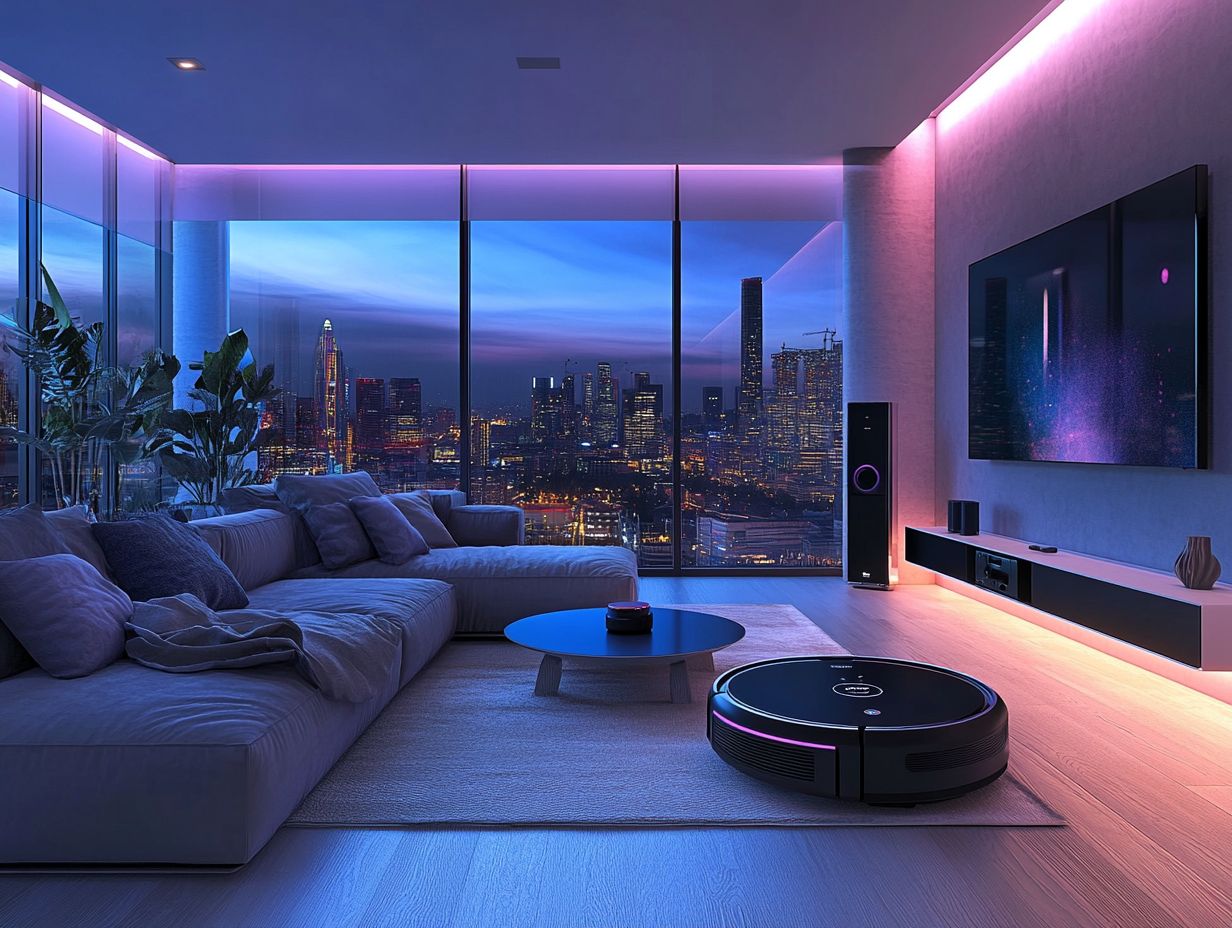
Current examples of smart home technology include smart thermostats, voice assistants, smart lighting, and smart security systems.
How is the future of smart homes expected to evolve?
The future of smart homes is expected to involve more advanced and integrated technologies, including artificial intelligence, virtual reality, and augmented reality, to make homes even more efficient and convenient for residents. Staying updated on the top smart home trends for 2024 can help homeowners make informed choices.
What are some potential benefits of living in a smart home?
Living in a smart home can offer numerous benefits, including increased energy efficiency, enhanced security, improved comfort and convenience, and potential cost savings on utility bills.
What are some potential concerns about the future of smart homes?
Potential concerns about the future of smart homes include privacy and security risks, technological malfunctions, and increased reliance on technology in daily life.
How can I prepare for the future of smart homes?
To prepare for the future of smart homes, start by familiarizing yourself with current smart home technology and considering which features would benefit you. It may also be helpful to research and invest in a reliable and secure smart home system and regularly update your devices to keep up with advancements.
Explore smart home options today to ensure you re ready for the future!

